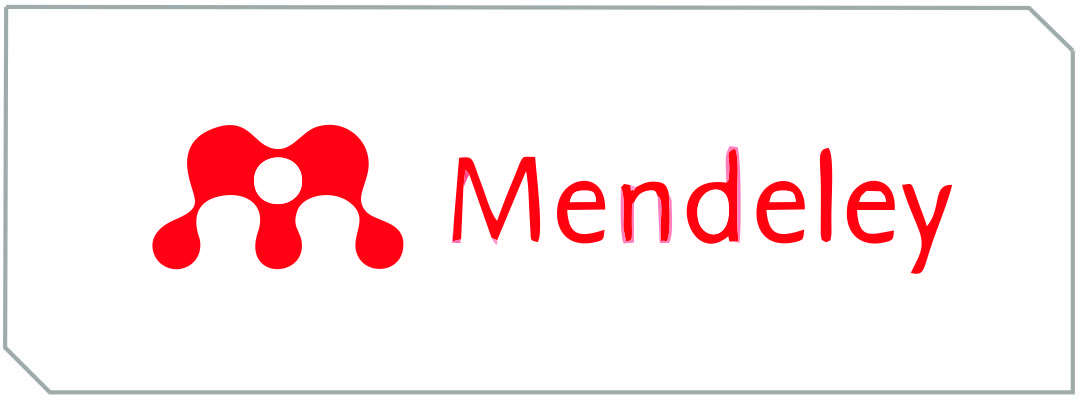Peningkatan Hasil Belajar Melalui Kemandirian Belajar Dan Komunikasi Interpersonal Di Sekolah Minggu Buddha (SMB) Chong De Se-Sumatera Utara
DOI:
https://doi.org/10.47861/dv.v6i1.50Abstract
The purpose of this study was to determine the independence of learning and interpersonal communication on the learning outcomes of Chong-De High School students in North Sumatra. The independent variable in this study is learning independence and interpersonal communication and the dependent variable is learning outcomes. In this study using a sample using probability sampling technique, with a total sample of 150 respondents. This research uses primary data, data is collected by distributing questionnaires to respondents via google form which is tested with SPSS 20.0 for Windows. The results of the research show that learning independence has a positive effect on student learning outcomes of SMB Chong- De North Sumatra with the resulting correlation coefficient of ry1 = 0.790 and the resulting coefficient of determination score of r2y1 = 0.624. Interpersonal communication has a positive effect on student learning outcomes of SMB Chong-De North Sumatra with the resulting correlation coefficient of ry2 = 0.589 and the resulting coefficient of determination score of r2y2 = 0.347. Independent learning and interpersonal communication have a positive and significant effect jointly on student learning outcomes of SMB Chong-De North Sumatra with a correlation coefficient score of ry1,2 = 0.815 and a coefficient of determination score of r2y1,2 = 0.665. The regression equation in this study is as follows: 1.2 = 12,471 +
0.685X1 + 0.234X2. Based on these results, to optimize student learning outcomes, it is necessary to have policies and regulations to increase learning independence and interpersonal communication.
References
Ani, M. (2010). Komunikasi Organisasi. Bumi Aksara.
Arikunto, S. (2013). Prosedur Penelitian. Bina Adiaksara dan PT Rineka Cipta.
Baylor, A., Kitsantas, A., & Chung, H. (2001). The Instructional Planning Self-Reflective Tool: A Method for
Promoting Effective Lesson Planning. Educational Technology, 41(2), 56–59. Brookfield, S. (2000). Understanding and Facilitating Adult Learning. Josey Bass Publisher.
Devito, J. A. (1997). Komunikasi Antarmanusia. Jakarta (E. a. Lyndon Saputra (ed.); 5th ed., p. 45). Karisma
Publishing Group.
Dimyati, & Mudjiono. (2006). Belajar dan Pembelajaran. PT. Rineka Cipta.
Galvin, K. M., Braithwaite, D. O., Schrodt, P., & Bylund, C. L. (2018). Family Communication Theories. In
Stephen w. Littlejohn & K. A. Foss (Eds.), Family Communication (9th ed.). Thomson Higher Educattion. https://doi.org/10.4324/9781315228846-3
Indriyani, D., Padang, U. N., & Padang, U. N. (2019). THE INFLUENCE OF CHILDREN ’ S S LEARNING IN
SCIENCE ( CLIS ) MODEL ON STUDENT LEARNING OUTCOMES. 1(2), 25–32.
Irfan Sugianto, Savitri Suryandari, L. D. A. (2020). EFEKTIVITAS MODEL PEMBELAJARAN INKUIRI
TERHADAP KEMANDIRIAN BELAJAR SISWA DI RUMAH. Jurnal Inovasi Pendidikan, 1(3), 161–
John R. Schermerhorn, J., Hunt, J. G., Wayne, R. N. O., & University, M. U.-B. (2007). Organizational Behavior.
Journal of Chemical Information and Modeling, 406.
Kasmadi, & Sunariah, N. S. (2014). Panduan Modern Penelitian Kuantitatif (2nd ed.). CV Alfabeta Bandung.
Komalasari, K. (2009). The Effect of Contextual Learning in Civic Education on Students ’ Civic Co mpetence
Kokom Komalasari Faculty of Social Science Education , Indonesia University of Education , Indonesia.
Journal of Social Science, 5(4), 261–270.
L.Tubbs, S., & Moss, S. (2012). Human communication : prinsip-prinsip dasar (Buku pertama) (1st ed.). PT.
Remaja Rosdakarya.
Lindgren, R., & Schwartz, D. L. (2009). Spatial learning and computer simulations in science. International
Journal of Science Education, 31(3), 419–438. https://doi.org/10.1080/09500690802595813
Muhibin, S. (2010). Psikologi Pendidikan Dengan Pendekatan Baru. PT. Remaja Rosdakarya. Mujiman, H. (2007). Manajemen Pelatihan Berbasis Belajar Mandiri. Mitra Cendekia. Mulyana, D. (2015). Ilmu Komunikasi Suatu Pengantar. PT. Remaja Rosdakarya.
Nurwahyuni. (2013). Pengaruh Konsep Diri Siswa dan Pola Asuh Orangtua Terhadap Kemandirian Belajar Siswa
SMP di Palu Sulawesi Tengah. Tri Sentral Jurnal Ilmu Pendidikan, 2(Edisi 4 Juli-Desember), 7–8.
Petty, Richard E, Cacioppo, J. T. (2008). The Elaboration Likehood Model of Persuasion. Jurnal Association for
Consumer Research, 5, 237–239.
Purwanto. (2011). Evaluasi Hasil Belajar. Pustaka Pelajar.
Ricardo, R., & Meilani, R. I. (2017). Impak Minat dan Motivasi Belajar Terhadap Hasil Belajar Siswa. Jurnal
Pendidikan Manajemen Perkantoran, 2(2), 79. https://doi.org/10.17509/jpm.v2i2.8108
Riduwan. (2011). Belajar Mudah Penelitian untuk Guru-Karyawan dan Peneliti Pemula (Akdon (ed.); 7th ed.). CV Alfabeta Bandung.
Shella, & Dariyo, A. (2016). Hubungan Antara Persepsi Siswa Terhadap Keterlibatan Orangtua Dan Motivasi Belajar Dengan Prestasi Belajar Matematika Pada Siswa Sekolah Dasar ( Studi di Kota Pangkalpinang , Bangka Belitung ) Relationship between Perception of Parental Involvement , Lear. Jurnal Psikogenesis,
(1), 1–11.
SUDJANA, N. (2017). Penilaian Hasil Proses Belajar Mengajar (21st ed.). Remaja Rosdakarya. Sugiyono. (2015). Metode Penelitian Kuantitatif, Kualitatif dan R&D (22th ed.). CV Alfabeta Bandung.
Susilawati, D. (2009). Upaya Meningkatkan Kemandirian Belajar Dan Kemampuan Matematika Siswa Kelas X SMA N 1 Gamping Dengan Menggunakan Lembar Kerja Siswa. Program Studi Pendidikan Matematika,
UNY.
Wayne, H., & Ruth, D. C. (2003). Testing and Motivation for Learning, Graduate School of Education, Assessm ent in Education. Journal Assessment in Education, 10(2), 116–127.
Wragg, E. C. (2011). Pengelolaan Kelas, terj. Anwar Jasin. PT Gramedia Widiasarana Indonesia






